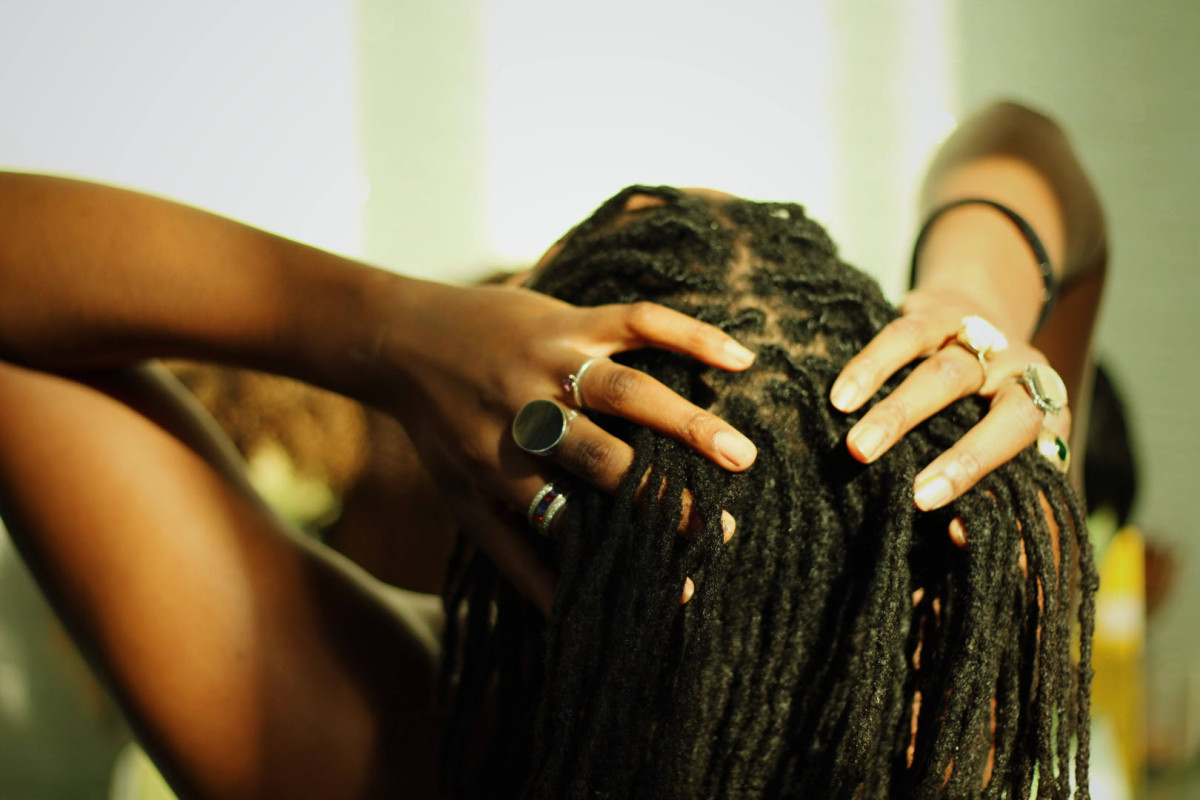
Black women in Aotearoa have shared experiences through their hair journeys that connect them. Photo: Renati Waaka/Re:
This story was first published August 23rd, 2022.
This story is part of Re:’s Fashion, where we take a look at everything from fast fashion, cosmetic surgery, the prices of people's outfits to exploring what rural fashion says about New Zealand culture. Check out the rest of the stories here.
Throughout history, Black women have been using their hair as a radical act against western beauty standards that told them their natural hair was not beautiful or good enough.
Today Black women across the world are continuing to celebrate and embrace their natural hair - sharing hair care routines and ultimately, rejecting eurocentric beauty standards. Beth Teklezgi spoke to four Black women living in New Zealand about their hair.
For Black women, their hair journeys start from a very young age and continue through adulthood.
A big part of the journey is unlearning all the false narratives taught about afro hair textures and hairstyles.
Their journeys are challenging growing up in a white-dominated society where they are shamed and pressured to conform to what is perceived as acceptable and desirable.
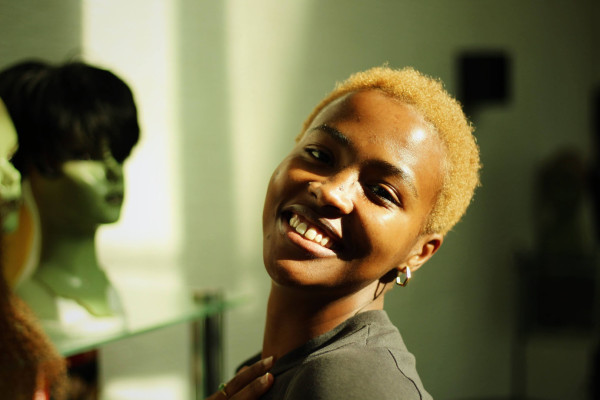
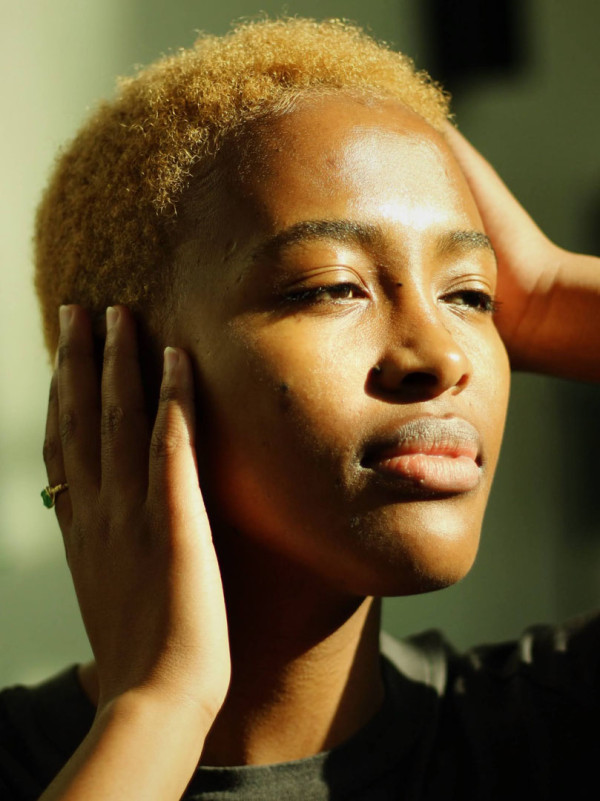
Hycenta Uwikunda reflects on her journey of learning to love and embrace her natural hair saying “it has definitely been a long, long one”. Photo: Renati Waaka/Re:
Hycenta Uwikunda, 26, Wellington
“For me, [my hair care journey has] really been one of teaching myself first to love my hair and not just tolerate my hair, and then it's to learn to have fun with the many styles that I can try on.”
But it hasn’t always been easy getting there, especially when she showed up to school in braided hairstyles.
“I remember in primary school these kids made fun of a hairstyle that my mum had spent hours doing for me, ultimately leaving me in tears.”
“I never wore that hairstyle again,” Hycenta says.
She says over the years there are constant reminders of her “otherness” in how people respond to her wearing her hair in an afro and braids.
“It’s especially bad when it’s a complete stranger who starts touching you without having even said a word as though you are just an object on display.”
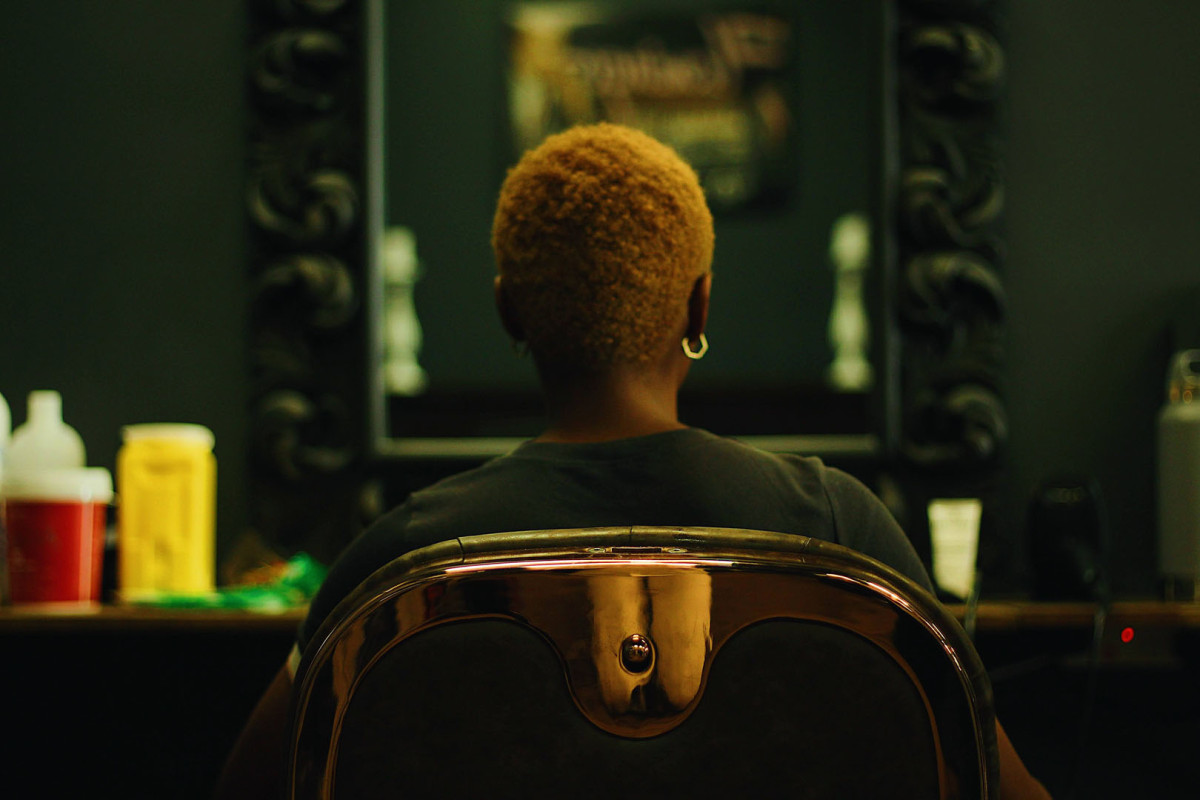
Hycenta says her hair care routine has changed now that she has short hair but was way more time-consuming when she had longer hair.
“I would spend two days braiding it into long braids or spend whole days deep conditioning it and then doing wash ’n’ goes, trying to manipulate its natural texture.”
But she says she’s unlearned the need to style her hair a certain way. “I've also tried not to have perfectly styled hair with perfectly laid baby hairs whenever I have to leave the house.”
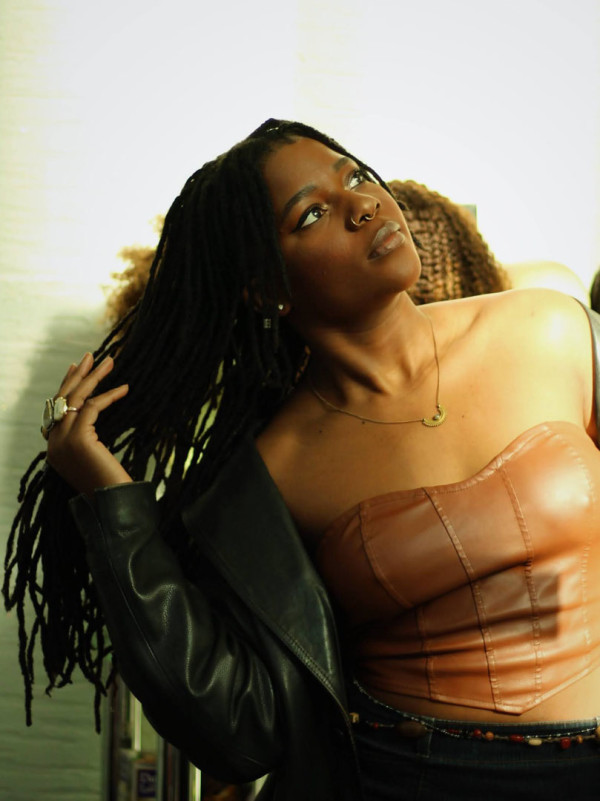
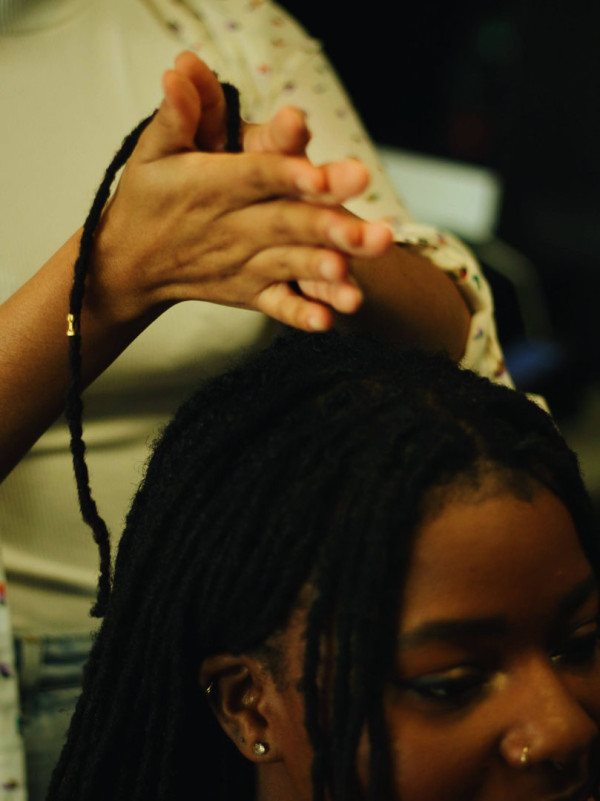
Cassandra talks about her experience of growing up in a small town with locs. Photo: Renati Waaka/Re:
Cassandra Tiffany Tauro, 19, Dunedin
Cassandra says “my hair journey in Aotearoa has been more of an amalgamation of experiences, experiencing stares and micro-aggressive criticism but more than anything experiencing the curiosity of those around me”.
Cassandra says she would get comments like “your hair looks like black Cheetos or spider legs”.
Growing up in a small town, Cassandra experienced the ups and downs of falling in and out of love with her natural hair.
“Especially at a younger age when we are so easily influenced by those around us, yearning to fit in somehow.”
Ignorant comments and questions she would constantly get, Cassandra says, are a reflection of the lack of education and knowledge on Black hair in Aotearoa.
Cassandra says her mother had a big influence on her falling in love with her hair and wanting to have locs.
“Finding that representation right next to me really aided me in loving my hair wholeheartedly. Of course, there were phases where I wanted the eurocentric straight long hair especially in my early high school days. That’s long gone now, I am in love with the versatility of having black hair periodt.”
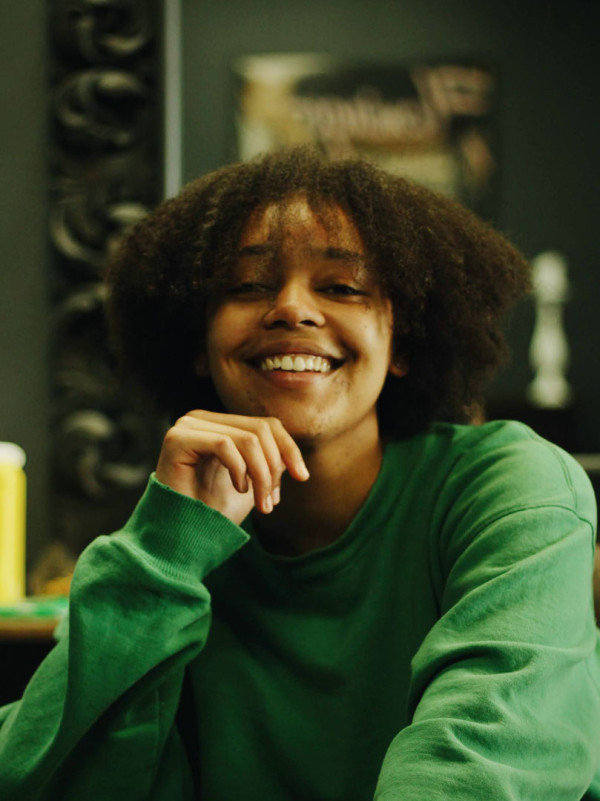
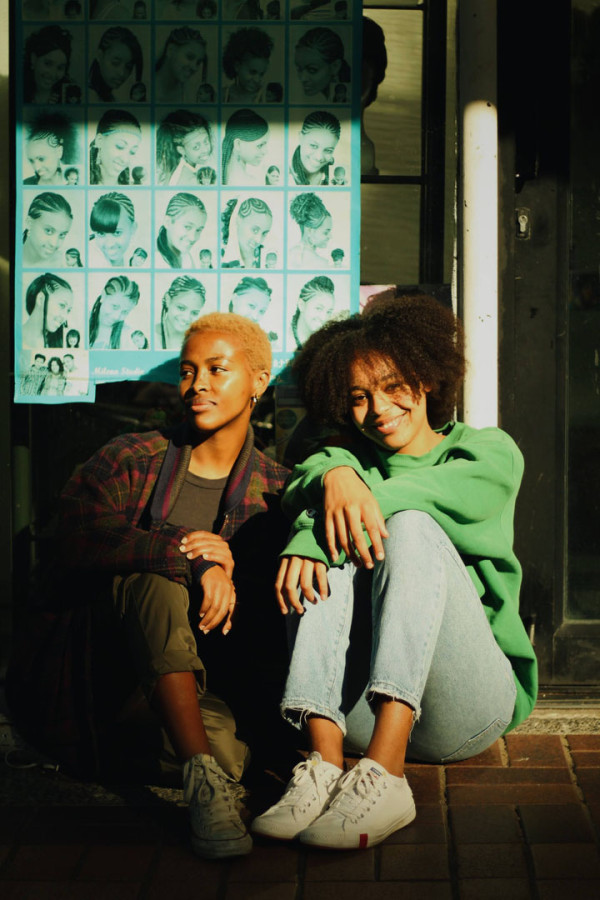
Image captured outside one of the only African hair salon in Wellington located on manners street. Photo: Renati Waaka/Re:
Savannah Sullivan, 21, Wellington
Savannah says she vividly remembers what it was like going from her mum styling her hair to going out into the world and realising the lack of experience and knowledge hairdressers have on how to work with her hair.
“I vividly remember a hairdresser washing my hair and it was so tangled afterwards. She did not know how to wash my type of hair.
“I remember doing a modelling gig and my friends with straight hair would get really nice styles and I would get what the stylist could manage … a bun.”
Growing up, Savannah says she did not enjoy her hair.
“It was hard to look after and a big inconvenience. To add on top of that, women are praised for their beauty and it was very rare to see a Black woman with their natural hair.”
While she did not see a lot of representation, Savannah found inspiration from her older sisters and strangers.
“Looking at older sisters of mine who had afros, braids, bald or low cuts was who I looked up to for my black hair representation. I love to admire Black women and men who rock their natural hair and that often comes simply from those I pass on the street.”
Savannah says she is continuing to still learn and build more confidence around her natural hair.
“What started out as a chore is now a process I love and I feel my best when my hair is looking good.”
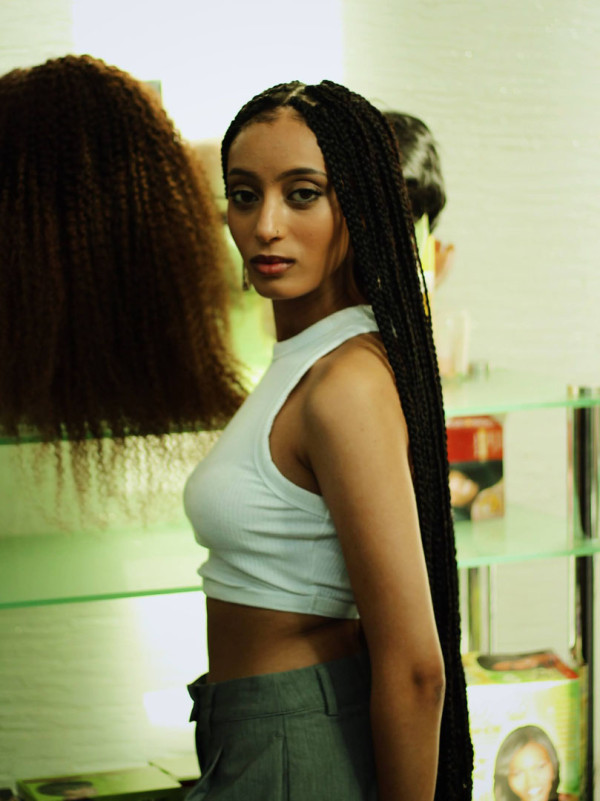
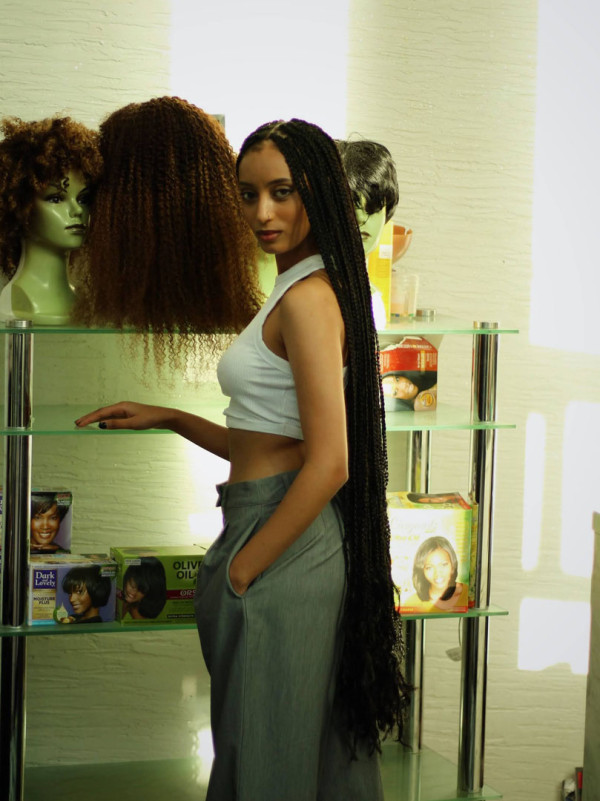
For Selome her hair is one of the many ways she takes up space. Photo: Renati Waaka/Re:
Selome Teklezgi, 23, Wellington
Selome says what her hair means to her is ever-changing and her relationship with it has gotten more positive as she’s grown more sure of her identity.
“I see it as a privilege to share similar texture hair with phenomenal Black women that have contributed so much to better the world. My hair is a way I connect and relate to other Black women from past and present.”
“I have looked to iconic Black activists like Nina Simone, Angela Davis and the women in my family. They have played a massive role in my self-acceptance journey,” Selome says.
“No matter how many long stares and second looks I get walking into a room, they have implanted a deep sense of pride in my hair and that's something that can't be robbed from me.”
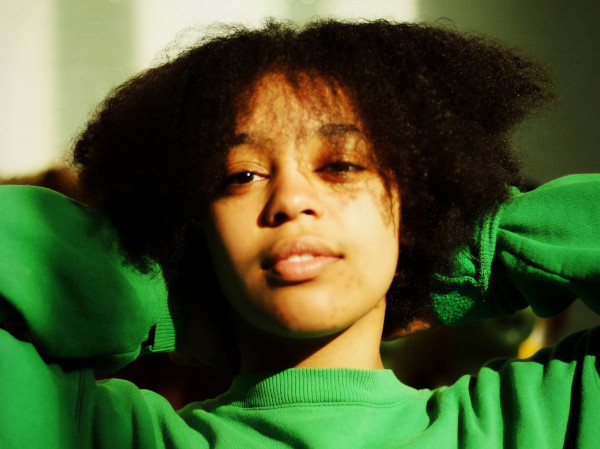
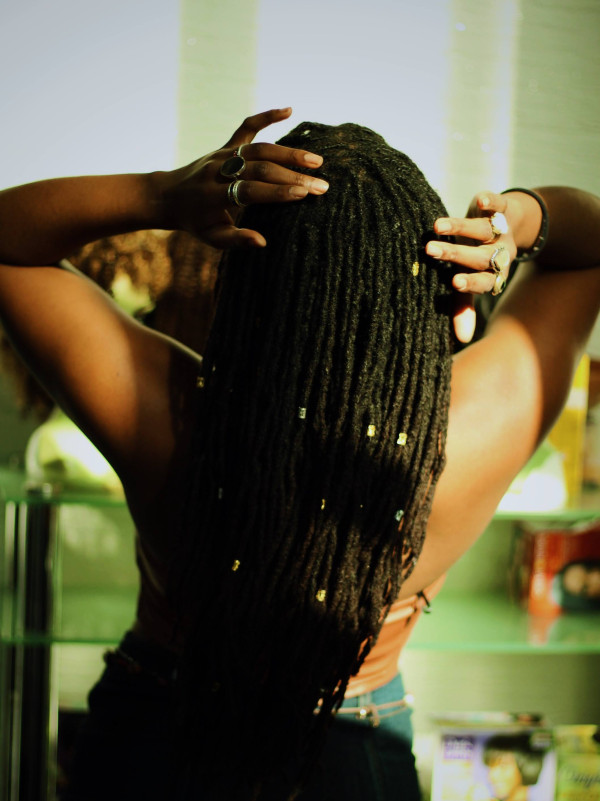
Is change on the way?
As the Black community continues to grow in Aotearoa, there are now places and people that Black women can go to get their hair braided, twisted, or whatever style they desire.
There are also places where hair products like braiding extensions as well as shampoos and conditioners are sold that are suitable for black hair textures.
However, there is still a gap for affordable and accessible hair products in Aotearoa.
The shampoos and conditioners that are affordable are often not made for Black hair and can be damaging.

Selome, Savannah, Cassandra and Hycenta all agree on there needing to be changes. Photo: Renati Waaka/Re:
Savannah says “I want to see the celebration and inclusion of black hair and its natural form”.
“I value this a lot. I would 1000% change the image of beautiful hair in New Zealand. To see only straight hair amplified, it implies curly hair or anything further is undesirable.”
Hycenta says it would be great to have more accessible and affordable hair products.
“Also to have more hairdressers who can do black hair, I definitely think there would be a market for it,” Hycenta says
Cassandra hopes for personal awareness.
“I think that’s the prime thing, just people educating themselves and asking those questions they’d approach me with in the search tab instead.
“Every time you see a Black woman and you think to yourself ‘her hair is beautiful, I wonder…’ - tell her that her hair is beautiful but keep your wonders to yourself.”
Selome says “dreadlocks, braids and afros are continuing to be banned from schools”.
“Not understanding the significance of these hairstyles only highlights the lack of awareness principals and teachers have when it comes to the cultural identities of their students.”
These are schools that pride themselves on being diverse, she says.
“I would like to see a better filtering system in place that emphasises understanding students' cultural differences and overall wellbeing.”
Beth Teklezgi is a writer with an African refugee background living in Pōneke. She is passionate about advocating for communities that have been marginalised through storytelling.
More stories:
Inside the club night that’s elevating fashion in Auckland
This Africa Day, we revisit our night at the best party in town.
Celebrating Eid in NZ: Fashion, food and family
"Everyone wears the nicest clothes they have or they’ll buy new outfits or dress however they want."
‘The best version of yourself takes time’: Rangatahi inspiring change in NZ
"Whatever you think you can shine light on in this forever changing world, just do it."